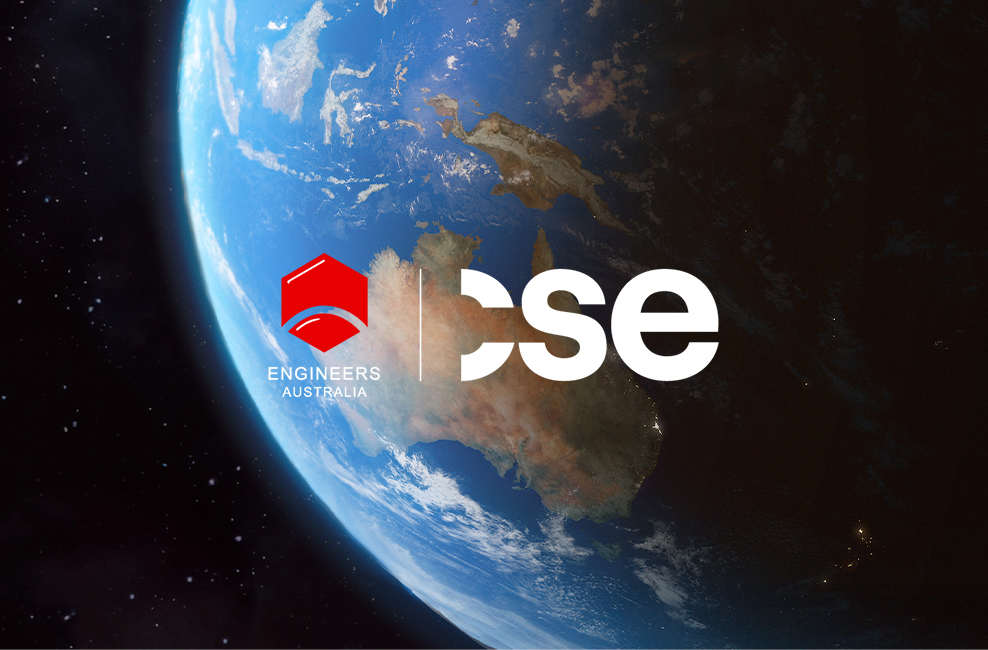This month Engineers Australia’s 2024 Climate Smart Engineering Conference (CSE24) will tackle one of the biggest climate challenges: the clean energy transition.
The global shift towards renewable energy sources is not just a change in the way we power our world; it’s a transformation that requires a re-evaluation and adjustment of everything from our technology to our workforce and skills. The move from thermal energy sources to cleaner, greener technologies means the engineering sector must adapt and evolve, embracing the challenges and opportunities this brings.
The clean energy transition is the theme of the Engineers Australia Climate Smart Engineering Conference (CSE24) to be held in Brisbane on 22 August 2024. It’s an opportunity to hear from leading engineers, industry experts, academics, and policymakers, learn from successful technical solutions and strategies, and connect with peers. The program for CSE24 is designed to address various aspects of the transition, emphasising the need for adaptability, innovation, and collaboration in the engineering community.
One of the many highlights of CSE24 is the panel on Digital Technology and AI in the Energy Transformation. AI and other digital technologies have the potential to significantly accelerate the energy transition. This panel will discuss the benefits and risks, including cybersecurity, data privacy, integration, and ethical, social, and economic impacts. The discussion will be moderated by Colette Munro, Zone President Pacific at Schneider Electric, with panellists including Peter Price, Chief Engineer at Energy Queensland; Jack Curtis, Chief Commercial & Operations Officer at Neara; Allys Todd, Co-Founder Director at ValAi; and Prof John Fletcher, Director of the UNSW Digital Grid Futures Institute.
Emerging Technologies and How They Support the Energy Transition is another featured segment, presented by Nikolai Kinaev, Research Director, Science Strategy (Energy) at CSIRO. This session will explore how new technologies can facilitate the shift to renewable energy.
The Skills Transition to Clean Energy panel will address Australia’s need to address the shortage of engineers with relevant skills for the clean energy sector. The panel includes Dominic Adams, General Manager Networks at Energy Networks Australia; James Oliver, Chief Operating Officer at Stanwell; and Karen Whelan, Associate Dean Learning and Teaching at the Faculty of Engineering, Queensland University of Technology. They will discuss challenges and solutions, including attracting diverse talent, upskilling, retention, and reforming training and education pathways.
A panel on Project and Landowner Approvals in Renewable Energy Projects will focus on the challenges engineers face related to environmental, landowner, amenity and cost complexities that are inherent within the project lifecycle. Simon Corbell, Board Chair at SEC Victoria; Gillian Cagney, President – Australia & New Zealand at Worley; Russell Reid, Senior Aboriginal Affairs and Participation Consultant and National RAP Relations Lead at WSP Australia; and Gerard Coggan, Coordinator-General at the Office of the Coordinator-General Department of State Development and Infrastructure, will discuss navigating these complexities and finding ways forward.
The Regional Industrial Transformation: Decarbonisation in the Heavy Industry panel will explore the challenges of decarbonising heavy industry. Moderated by Dr. Jordan Parham, Strategic Initiatives and Partnership Director at HILT CRC, panellists include Roger Buckley, Fleet Decarbonisation Manager at Aurizon; Meheroop Chopra, Head of Green Power at Fortescue; Marghanita Johnson, CEO at the Australian Aluminium Council; and Sheree Taylor, Queensland Specification Manager for Commercial and Civil Construction at Bluescope.
Systems Design for Energy Transition will discuss the integration of renewables and storage into the electricity grid. This panel will feature Prof Bruce Mountain, Director of the Victoria Energy Policy Centre; Kate Summers, Principal Consultant at Ekistica; Merryn York, Executive General Manager of System Design at AEMO; and Dr. Stephen Craig, Smart Energy Mission Lead at CSIRO.
Finally, Transformation in the Transport Sector will explore how adapting all transportation methods to support the energy transition is essential for achieving sustainability. Moderated by Mia Barnard, Transport Decarbonisation Lead – Australia at GHD, the panel includes Joeley Pettit, General Manager Sustainability at the Australasian Railway Association; Dr. Jake Whitehead, Chief Scientist at the Electric Vehicle Council; global sustainability advisor Heidi Hauf; and Harry Sunarko, Lead Port & Marine Engineering at Fortescue Future Industries.
With engineers and industry poised to play a major role in Australia’s clean energy transition, this conference is an opportunity to network, connect and collaborate to build a better and more sustainable world.
Climate Smart Engineering Conference
Thursday 22 August | Brisbane
To view the program and register, visit: engineersaustralia.org.au/cse

